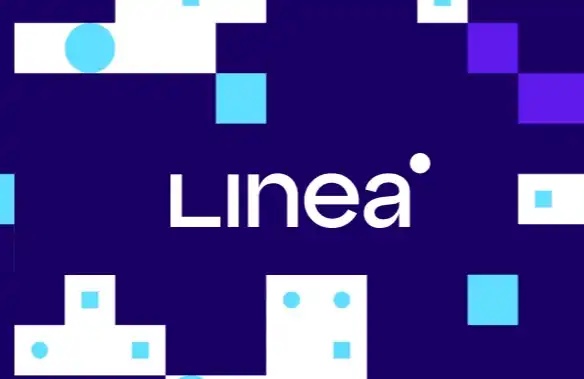Do you join if you can't beat them? Nasdaq Executive Reveals Why They Chose to Embrace Tokenization
Original Title: Q&A: Nasdaq's New Proposal for Tokenized Securities
Original Source: Nasdaq Newsroom
Original Translation: 比推 BitpustNews
A blockchain integration revolution led by traditional financial giants is unfolding at full throttle.
On September 8, 2025, Nasdaq submitted a landmark proposal to the U.S. Securities and Exchange Commission (SEC), seeking approval for its members and investors to trade tokenized equity securities and exchange-traded products (ETPs) on the exchange. This means that in the future, stocks of leading companies such as Apple and Microsoft will be able to be traded and settled on Nasdaq in the form of blockchain tokens.
“We are not looking to replace the existing system but to provide the market with another, more efficient, and transparent technological choice.” Chuck Mack, Senior Vice President, Nasdaq North American Markets, said in an interview, “Tokenized securities are simply the same assets expressed in a new form on the blockchain.”
The following is the full interview of Chuck Mack with Nasdaq, providing a detailed explanation of how this proposal works, why it was introduced, and how it could potentially change everyone's investment approach.
In simple terms, what does Nasdaq hope to achieve with this proposal submitted to the SEC?
Chuck Mack: The rule change proposed by Nasdaq would allow member firms and investors to trade tokenized versions of equity securities and exchange-traded products (ETPs) on our market. Our goal is to integrate digital assets into Nasdaq's current infrastructure and systems, driving financial innovation while maintaining stability, fairness, and investor protection.
Specifically, the application provides a straightforward way to enable the trading of tokenized securities within the existing regulatory framework and leverage the Depository Trust Company (DTC) for tokenized trading, clearing, and settlement.
Here's how it works: a security can be traded on Nasdaq in either a traditional or tokenized form.
- The traditional form involves digital representation of ownership and rights but does not use distributed ledger or blockchain technology.
- Tokenization is the digital representation of ownership and rights using distributed ledger or blockchain technology.
When submitting orders, participants can choose to settle and clear in either traditional form or tokenized form, and the exchange will communicate the participants' instructions to the DTC. All shares will trade on Nasdaq following the same order input and execution rules, with the same identification number (CUSIP) as traditional stocks, and endow their holders with the same rights and interests.
A Quick Look Back: What Exactly Is Tokenized Securities?
Chuck Mack: There are two components here: tokens and securities.
In this context, a token is a digital representation of any asset created and recorded on a blockchain—this data storage method was originally popularized by Bitcoin. This could include coins like Bitcoin itself, tokens pegged to the dollar like the stablecoin Tether (USDT), or representations of ownership on the blockchain or any other form of rights.
Meanwhile, a security is a tradable financial asset representing ownership in a company or a debt obligation—such as stocks or bonds.
Therefore, tokenized securities are representations of these traditional financial instruments that have been recorded on blockchain or other distributed ledger technology.
From our perspective, it is important to emphasize that even though tokenized securities are technically different from those traded on the Nasdaq market today, under our proposal, they still represent the same value storage as their traditional counterparts.
After all, we already live in a digital world. Today's stocks and other securities are represented and recorded digitally, so tokenization is just a different way of digitally representing assets.
What are some key details in the Nasdaq proposal that ordinary investors should be aware of?
Chuck Mack: Fundamentally, we propose leveraging the existing infrastructure of the U.S. market to enable the trading of tokenized securities.
There is significant demand globally for securities traded on Nasdaq, and this tokenization technology has sparked emerging interest. What we propose is an integrative capability that allows market participants to use the systems they are already familiar with and trust to obtain a digital representation of the securities.
The proposed rule changes will give investors a choice: to have the stock or ETP they wish to trade represented in tokenized form or traditional digital form. If they choose the tokenized approach, then the DTC will do the backend work to clear and settle the trade and record the asset as a blockchain-based token.
It is important to note that such transactions will still take place under the SEC's existing federal regulations to ensure fair and orderly trading.
This is a key point in our proposal: existing U.S. rules do not preclude different representations of securities. If you trade a stock, and we tokenize it post-trade through DTC, then from a market operations, trading, best execution, or trading on an exchange perspective, there is no change.
Importantly, traditional and tokenized forms of stocks will have the same value, the same rights and interests, and the same market identification.
At Nasdaq, we believe that security tokenization can be not only built within the market's existing framework and guidelines but should be. That is why this proposal is an important way to introduce tokenization to the market: it will enable this new technology to evolve and be embraced while also ensuring that our decades-long investor protection measures remain intact.
Why is Nasdaq Interested in Tokenized Securities?
Chuck Mack: In some ways, this is in response to demand: many market participants, including Nasdaq, see tokenization as having the potential to benefit investors, issuers, and the economy more broadly.
Blockchain technology can offer many potential efficiencies, including faster settlement, improved audit trails, and a streamlined process from order to trade to settlement. Additionally, once equity assets are on-chain, there is potential for them to be used in new ways.
All of this potential means people are excited about this technology, and we hear demand in the market for trading tokenized securities. We want to be part of the solution, helping the market evolve to continue meeting investor needs and ensuring proper implementation.
Past market failures tell us that governance, resiliency, and investor protection must be embedded from the start.
Nasdaq is committed to being a trusted structure within the global financial system, which means embracing new technologies as the market evolves in an investor-first manner to facilitate capital formation. Ultimately, it comes down to choice. If investors and market participants express a demand for a particular approach, and we can implement it in a way that maintains market integrity, then we want to offer them that choice.
Why is Nasdaq proposing this specific model to bring tokenized securities trading to the market?
Chuck Mack: We aim to make the process of trading tokenized securities straightforward and transparent for investors, while also leveraging the benefits of the current resilient and trusted stock trading ecosystem. The proposed rule changes are intended to enable innovation to occur within the current market infrastructure and structure, bringing new capabilities to investors while reinforcing the standards that make U.S. markets operate, particularly:
- Scale and Complexity: The U.S. stock market is the world's deepest and most liquid market, processing billions of trades daily. Any new system must operate at this scale with resilience, redundancy, and fail-safe measures.
- Investor Protection: The U.S. stock market has safeguarding and oversight measures in place to uphold the responsibility and accountability of companies involved throughout the transaction lifecycle, ensuring shareholder rights, dividends, and proxy voting.
Our proposal also explicitly seeks to keep tokenized security trading under the protective umbrella of the existing system to ensure price discovery, disclosure, and best execution. The goal is to maintain these principles as the market evolves and modernizes.
Another motivation for evolving the current system is to prevent market fragmentation, avoiding different versions of the same asset being traded as tokenized securities across multiple blockchains simultaneously but not interoperating well—especially in cases of unequal rule application. If this were to occur, transparency could decrease, liquidity could be fragmented, and price dislocation is likely to occur.
A well-functioning market with investor protection is crucial for capital formation, essential for a well-operating economy—at Nasdaq, we always say this boils down to liquidity, transparency, and integrity. We aim to ensure the protection of these pillars throughout the market evolution process, which is the goal we seek to achieve through the application.
Nasdaq recently announced changes to its listing standards, followed by news concerning governance of crypto asset custodian companies. How does this relate to today's announcement?
Chuck Mack: Each of these issues is separate. First, we recently announced further enhancing Nasdaq's listing standards to address key liquidity and trading issues for companies in today's market environment. These enhancements primarily target certain microcap companies exhibiting lower liquidity conditions.
Second, we have noted recent media reports about crypto asset custodian companies. Nasdaq has not implemented any changes or new rules specifically for these companies. Like with any market development, Nasdaq consistently provides guidance to our listed companies on the applicability of our existing listing rules, including shareholder approval rules applicable to any securities issuance by a listed company.
Third, today's announcement represents a separate application submitted to the U.S. Securities and Exchange Commission to facilitate trading of tokenized securities on its market.
While each of these issues is distinct, there is a common thread guiding Nasdaq's actions in the capital markets, which is to optimize capital formation toward our objectives, protect investors, and ensure market integrity.
So, What's Next for Tokenized Securities?
Chuck Mack: The application we submitted to the SEC will be made public for comment, and we look forward to hearing different perspectives in response. In fact, part of the reason we submitted the application is to encourage debate in a very transparent way.
At the same time, our team at Nasdaq will be working closely with clients and stakeholders to explain our ideas and gather feedback on how best to move the industry forward.
From a global perspective, it is clear that the adoption of tokenization will be a broad conversation that requires coordination across the entire industry. Market infrastructure providers, regulatory bodies, issuers, asset managers, and fintech companies will all play a role.
We welcome these discussions as they are ultimately about Nasdaq's core mission: driving economic progress for all.
An economy thrives on innovation and participation, and these forces require reducing friction and aligning market structures of incentives. Our tokenization proposal represents a step forward in the evolution of the global financial markets.
Welcome to join the official BlockBeats community:
Telegram Subscription Group: https://t.me/theblockbeats
Telegram Discussion Group: https://t.me/BlockBeats_App
Official Twitter Account: https://twitter.com/BlockBeatsAsia


 Forum
Forum Finance
Finance
 Specials
Specials
 On-chain Eco
On-chain Eco
 Entry
Entry
 Podcasts
Podcasts
 Activities
Activities
 OPRR
OPRR








